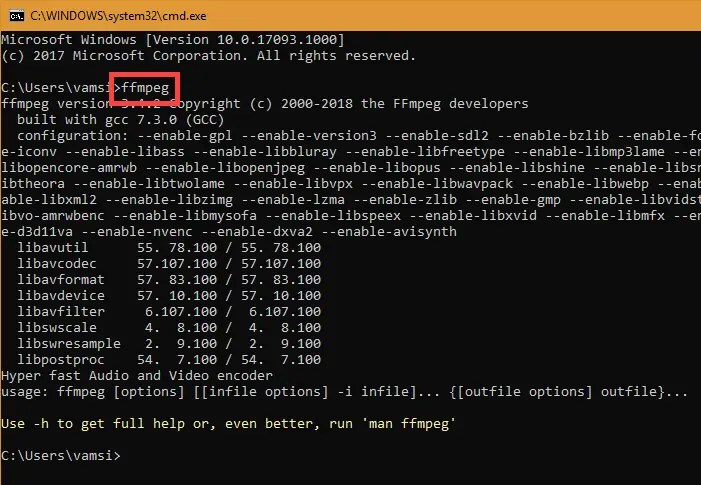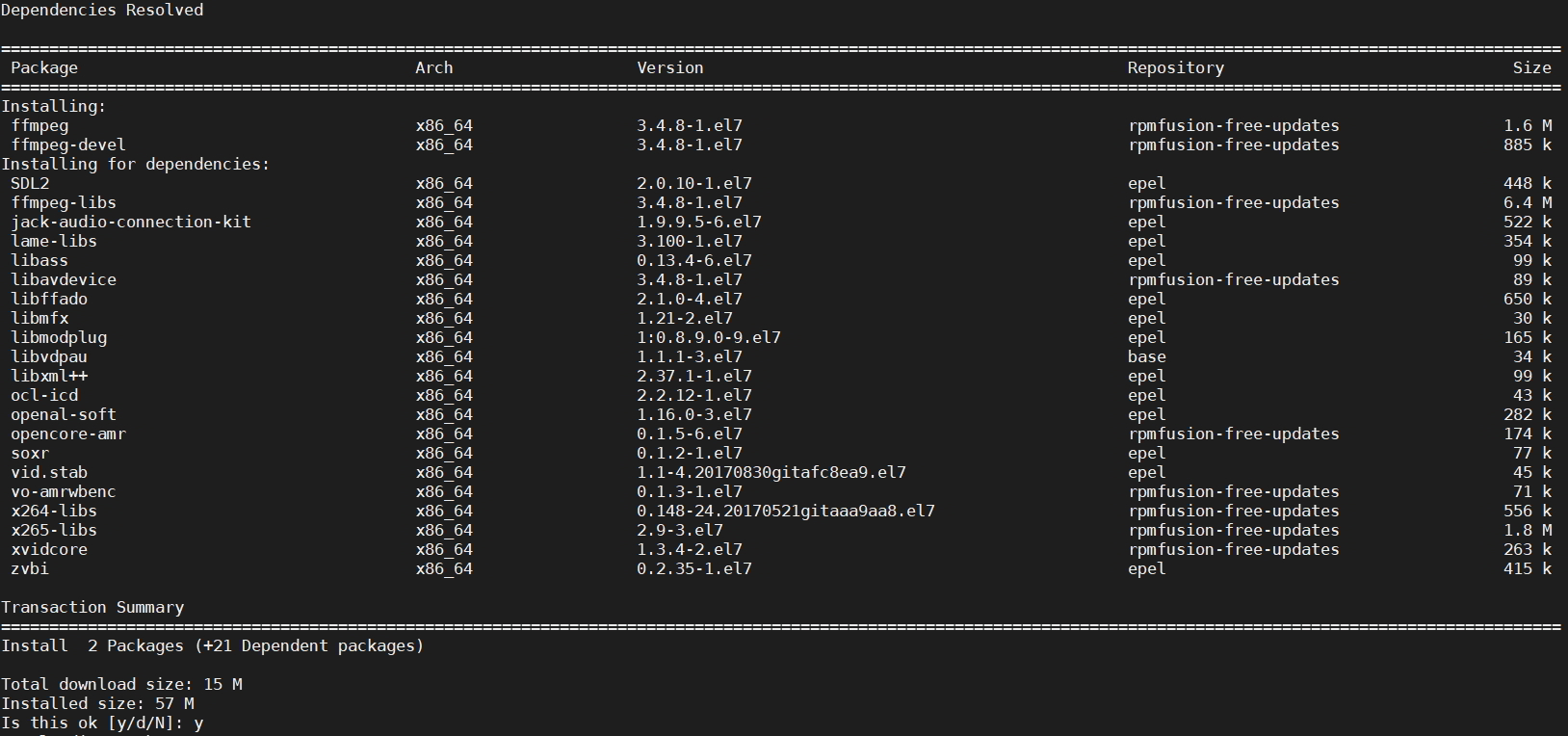

- #Ffmpeg download installer how to#
- #Ffmpeg download installer install#
- #Ffmpeg download installer software#
7.100 2.- FFmpeg on Ubuntu 20.04 / Debian 10 ConclusionįFmpeg is a valuable tool in Linux, although it also has versions for other systems. ffmpeg -versionįfmpeg version 4.3.2-static Copyright (c) 2000-2020 the FFmpeg developersĬonfiguration: -enable-gpl -enable-version3 -enable-static -disable-debug -disable-ffplay -disable-indev=sndio -disable-outdev=sndio -cc=gcc -enable-fontconfig -enable-frei0r -enable-gnutls -enable-gmp -enable-libgme -enable-gray -enable-libaom -enable-libfribidi -enable-libass -enable-libvmaf -enable-libfreetype -enable-libmp3lame -enable-libopencore-amrnb -enable-libopencore-amrwb -enable-libopenjpeg -enable-librubberband -enable-libsoxr -enable-libspeex -enable-libsrt -enable-libvorbis -enable-libopus -enable-libtheora -enable-libvidstab -enable-libvo-amrwbenc -enable-libvpx -enable-libwebp -enable-libx264 -enable-libx265 -enable-libxml2 -enable-libdav1d -enable-libxvid -enable-libzvbi -enable-libzimg Sudo ln -s "$/ffprobe" /usr/local/bin/Īnd with this FFmpeg will be ready and installed.
#Ffmpeg download installer install#
Then access the generated folder and install the binaries on the system: cd ffmpeg-4.3.2-amd64-static/ Now decompress the package: sudo tar xvf 16:08:59 (37.3 KB/s) - ‘’ saved 1.- Download the latest version of FFmpeg HTTP request sent, awaiting response… 206 Partial Content Inside the folder, we proceed to download the latest version of FFmpeg that at the time of writing this post is 4.3.2 sudo wget -c I will install it in /opt/ but you can choose another one. Then create a folder where the new version of FFmpeg will be located. To avoid any kind of problems, uninstall FFmpeg if you have it installed. So it is convenient to have the latest version available. FFmpeg has a very active development and that’s why it is always improving and adding features focused on speed. Anyway, the community brings us programs like MystiQ that provides a graphical interface to FFmpeg.īut the reality is that we come with something else. What is the problem with FFmpeg? It has no graphical interface and everything has to be done from the terminal. It is so incredibly good and efficient that many known applications already use it for their work as VLC, Handbrake, and so on. By framework, we mean that it contains codecs, tools, and programs that allow you to convert, record, and manipulate audio and video files.

So in this post, we will help you with that.įFmpeg is often confused with a codec, but the reality is that it is a multimedia framework.
#Ffmpeg download installer how to#
If it doesn't, you can tell it to by typing ani.Knowing how to install the latest version of FFmpeg is important if you know how to work with multimedia files. The animation library should automatically use 'avconv' if it sees it instead of 'ffmpeg'. You many need to first restart R after the install. Verify that R knows where to find it by typing `Sys.which('avconv')` in the R terminal.
#Ffmpeg download installer software#
Ubuntu and Debian systems may use an alternate program named "avconv" which can be installed with sudo apt-get install libav-tools or by searching 'libav-tools' in Ubuntu's Software Center. sudo apt-get install ffmpeg or search 'ffmpeg' in the Software Center on Ubuntu. If it is not installed, you should be able to install with your system's package manager. You can check if it is installed with a command like dpkg -s ffmpeg.


Installing in Linux/Unix (ffmpeg or avconv)įFmpeg is a standard package on many linux systems. The binary files are compressed with 7zip so may need to install an unarchiving utility: Installing in Windowsĭownloads are compressed with 7zip, so you may need to first install a 7zip decompression program before you can unpack the installer.ĭecompress the package and store contents on your computer (probably in Program Files)Įdit your system path variable to include the path to the directory containing ffmpeg.exe After you have installed FFmpeg on your system, you can verify that R knows where to find it by typing Sys.which('ffmpeg') in the R terminal. Here are some all-too-brief instructions for the various platforms. On winddows: Will open a web browser window to the ffmpeg website and give instructions how to open this help file. This internal function doesn't actually install the ffmpeg library, it just gives instructions on how to do the installation - which really just point to these docs. The animation package uses ffmpeg to export movies into video formats. Install.ffmpeg: Instructions for installing ffmpeg on various platforms Description


 0 kommentar(er)
0 kommentar(er)
